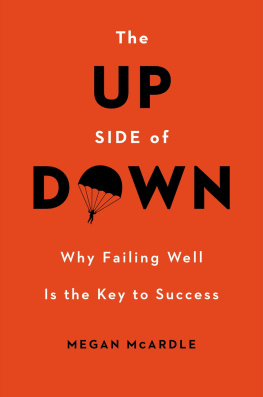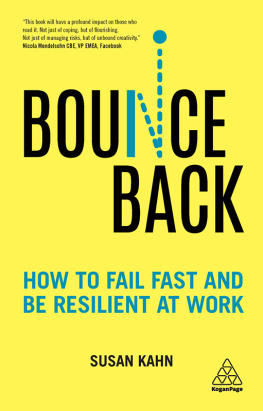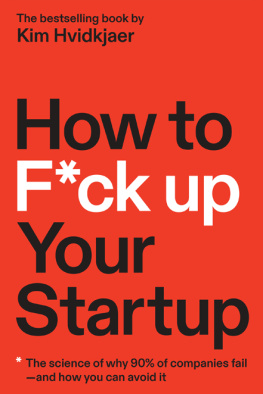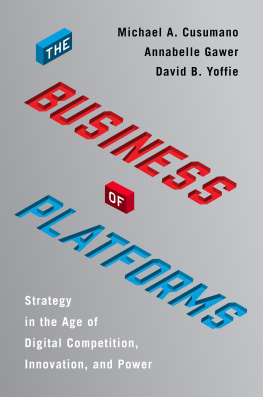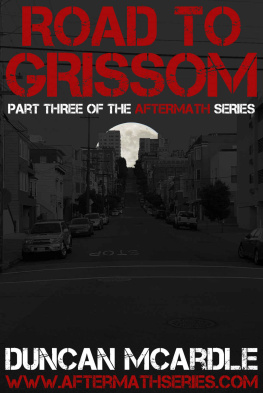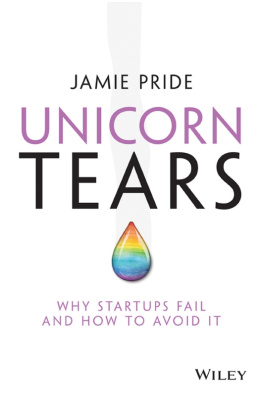USA | Canada | UK | Ireland | Australia | New Zealand | India | South Africa | China
Penguin supports copyright. Copyright fuels creativity, encourages diverse voices, promotes free speech, and creates a vibrant culture. Thank you for buying an authorized edition of this book and for complying with copyright laws by not reproducing, scanning, or distributing any part of it in any form without permission. You are supporting writers and allowing Penguin to continue to publish books for every reader.
McArdle, Megan.
The up side of down : why failing well is the key to success / Megan McArdle.
Includes bibliographical references and index.
1. Success in business. 2. Success. 3. Failure (Psychology) I. Title.
PREFACE
W hen you tell people youre writing a book, everyone tends to ask the same question: Whats it about? And when you tell them youre writing a book about failure, most of them want to know why. For two years, Ive been giving them the same answer: Write what you know.
Mostly, they think Im joking. Or at least theyre courteous enough to pretend they do. Ive got a great husband, a great job, a hundred-year-old row house near the U.S. Capitol, and an adorable bullmastiff puppy to chew up its woodwork. Ive written for many of the top publications in the English-speaking world. And I got Viking to give me a contract to write this book. My life is, I must admit, pretty great.
All these things are true. But this is also true: I am a spectacular failure. I am the Mozart of misfortune, the Paganini of poor luck. I have been laid off from more jobs than most people my age have hadlaid off, not fired, though Ive been fired too. At one point, my talent for finding employment at apparently healthy companies that went out of business four months later was so amazing that an acquaintance in equity research asked me to let him know if I got an offer from any of the companies he covered, so he could short the stock.
As youll see in the chapters to come, the amazing husband and the fabulous job are the gifts of my previous failures. By extension, so are the house and the dog. And by previous failures I dont just mean a spot of bad luck with the wrong start-up. I mean deep, soul-crushing periods of misery following stupid mistakes that kept me awake until the small hours of the morning in a fog of anxiety and regret. It was only latermuch laterthat I saw the wreckage of my previous hopes become the foundation for something bigger and better.
There is a famous story of a rich old man being interviewed by a young striver, who asks him for the secret of his success. Good judgment, says the magnate.
His eager young follower dutifully scribbles this down, then looks at him expectantly. And how do you get good judgment?
Experience! says our terse tycoon.
And how do you get experience?
Bad judgment!
Peek into the basement of any successful life and youll see that they, too, are founded on failure. It would be nice if we could serenely parade from triumph to triumph, but that is not how human beings work.
This is not, alas, a welcome message. Woody Allen once remarked that he didnt want to achieve immortality through his work; he wanted to achieve it through not dying. We feel much the same way about success: it should be achieved by not failing. Most of us hate failure, and spend quite a bit of our lives trying to arrange things so that it cant happen. Too often, when others fail were tempted to blame them and avoid them, lest some of their failure rub off on us.
Most of us fear failure more than almost anything else. The number-one fear cited by most Americans, above even death and spiders, is public speaking. Which is, of course, just the fear of failing in public. Failure feels bad to us, and worse when we think others can see it. Think about the last time you made a big mistake that a lot of people saw. You can already feel the hairs standing up on the back of your neck and the blush crawling up toward your ears, cant you?
These are deep instincts, wired into our very nature. But we make them worse by the way we think about failure. We tend to assume that failure happens because someone, somewhere, did something wrong. In fact, often failure is the result of doing something very right: trying something that youve never done before, maybe something that no ones ever done before.
But because failure doesnt feel good, we spend an enormous amount of time trying to engineer failure out of our lives, and out of our society. We are devoting ever more of our lives to seeking out what P. J. ORourke dubbed the Whiffle Life: the life in which nothing can ever go seriously awry. The upper middle class obsesses about sterling educational credentials. Children are practically encased in Bubble Wrap before they are allowed to step outsidenever without copious adult supervision. And if something does, god forbid, go wrong, we start looking for someone to sue. Someonea regulator, a company, an expertis supposed to be able to guarantee our perfect safety. The metaphor for our age is the disappearance of high monkey bars from playgrounds across the country. We have made it impossible for children to fall very farand in so doing, we have robbed them of the joys of climbing high.
This is a terrible mistake. It is the mistake made by the victims of Bernie Madoffs notorious Ponzi scheme, the largest financial fraud in U.S. history. The most amazing thing about Madoffs scheme is that it was a selective club; people had to wheedle their way in. Why were they cajoling their way into a Ponzi scheme? Not because the returns were unusually high. In fact, they were not spectacular by hedge-fund standards. What attracted people to Madoff was the fact that the returns were unusually safe. He delivered 12 percent year after yearbull market or bear, boom or recession. People went to Madoff because they thought theyd found a guaranteed, no-lose proposition.
In hindsight, they should have known that this was impossible. The economy is changing faster than ever, so how could Madoff get the same return regardless of what happened? His victims were seduced by what you might call the technocratic fallacy: the idea that someone who is sufficiently smart and dedicated can engineer the risk out of the system. This gives us a nice, warm cozy feeling. And that nice, warm cozy feeling is the most dangerous sensation we can have. There is no such thing as a risk-free investment strategyin finance, or in life. As Madoffs victims found out, the riskiest strategy is to try to work yourself into a position where you cant fail. The failure, when it comes, tends to be catastrophic, in part because you havent prepared for it.
Our declining ability to take risks, and to bounce back when things dont work out, is already beginning to play out. New firms, which have long been the engine of economic innovation and growth, arent being created as fast as they once were. Laid-off workers arent being reabsorbed by the job market. We are frozen, unable to tell whether the light were staring into is the end of the tunnel or an oncoming train.

